Welcome to my blog!
Every morning, I begin with a cup of coffee and 15 minutes of free thinking. I write down everything that comes to mind, from new ideas to thoughts that emerged overnight. This is where I develop and refine my new research. You'll find some repetition and ideas still in progress. Some might seem unusual or unclear at first, but that's part of the journey! I'm excited to share how my ideas form and evolve.
Exploring the relationship between logic and language, and questioning whether this relationship ultimately leads to psychologism.
Examining the central role of language in Twentieth-century analytical philosophy and the relationship between language, thought, and logic.
Exploring the distinct roles of logic and mathematics in understanding material and conceptual coherence, and how each contributes to different domains of reasoning.
Examining the possibility of non-violent change in addressing epistemic oppression and the potential for a "quiet revolution" in rebalancing societal powers.
Exploring the limitations of traditional Marxist theory in addressing modern societal complexities and the emergence of epistemic powers that shape contemporary inequities.
Today, I have the great honour of having a friend and colleague, Dr. Padriac O'Leary, contributing to Logic in the Wild blog. Dr. O'Leary recently joined the Computer Science department at the University of Auckland after completing a Ph.D. in philosophy with Prof. Fred Kroon. Today, Padriac elaborates on the idea of "logical impressionism," delving into its role in preserving coherence in complex contexts and its distinction from formal logic and rhetoric.
Exploring the principle of the climber’s agreement in the climbing community and proposing a similar approach to coherence and understanding in logical discourse.
Exploring the intersection of social epistemology and logic, examining how knowledge and coherence are affected when perspectives are pooled in a community.
Boolean negation inherits the law of non-contradiction from mathematics, but does it also get the rule of explosion? Exploring the implications of Boolean negation for logical consistency and the potential for coherent reasoning in the presence of inconsistency.
Exploring how intersectionality challenges the concept of sex as a binary or spectrum and invites us to view it through a pluralistic manifold.
Exploring the intersection of practice and theory in logic, and how a richer approach enhances both.
Exploring Andrea Nye's critique of logic and the challenges of addressing gender symbolism in philosophical discourse.
Examining the historical exclusion of women from the domain of logic and how feminism reveals the unequal distribution of epistemic power and the fabrication of gendered reasoning.
Exploring how Ancient Greek notions of harmony reveal the essence of logical thinking as a pursuit of coherence, connecting music, mathematics, and the cosmos.
This post explores how the term ‘logic’ is used in various contexts, from political ideologies to natural processes, and questions whether it genuinely reflects logical reasoning in the scenarios it describes.
In this post, I explore the implications of the "Kiwi Before Iwi" slogan and its strict adherence to the logic of equality, questioning whether it truly serves justice or perpetuates inequality.
This post explores the distinctions between neutrality, equality, and equity in logical discourse, emphasizing the importance of creating a fair and inclusive space for dialectical enquiry. While neutrality aims for equal treatment, true equity ensures that all voices are heard and valued, preventing the erasure of marginalized perspectives.
This post explores David Lewis's theory of modal realism, which posits the existence of possible worlds to account for our modal discourse, and asks whether this view is coherent and cogent.
This post delves into the complex task of defining the self, examining the role of logic in providing coherence to our understanding of identity and presence in the world.
This post explores the intriguing connection between logical thinking and authenticity, suggesting that coherence rather than truth might be the key to understanding our true selves.
Exploring a concrete example of logic in everyday life, this post challenges the perception of logic as an emotionless, external tool. It highlights how logic protects us by guarding coherence in reasoning, rather than dictating surprising, non-human decisions.
This post explores the principle of charity in argumentation, emphasizing the importance of interpreting others' arguments generously and the role of logic in fostering charitable discourse.
This post explores the necessity of logic in community development, highlighting how logical interaction fosters a neutral space for dialectical enquiry, enabling diverse perspectives to find common ground without imposing majority beliefs.
In this post, I explore how epistemic structures, akin to Kuhn's scientific paradigms, can become oppressive logical monsters. These structures, passed down through generations, resist change and contribute to systemic injustice. Can seeking coherence in dialectical enquiry offer a path to overcoming cultural incommensurability and fostering better communication across paradigms? Is a Kuhnian analysis the right approach to understand epistemic oppression?
Short description: This post explores the concept of "emerging structural oppression," examining how power structures evolve and perpetuate systemic and epistemic oppression, with a focus on the role of logic in reinforcing these injustices.
his post explores how logic can be systemically oppressive, drawing on the works of Fricker, Dotson, and Mills to examine the intersection of epistemic injustice, white ignorance, and the inertia of dominant epistemic systems.
This post asks why we keep interrupting each other. Is it out of good intentions? Learn how a simple trick of posing uptake questions can help us do better.
This post explores the importance of engaging with a logical mindset in discussions, using a personal experience to illustrate how logical enquiry can foster constructive communication.
This post explores whether logical injustice is a distinct kind of injustice or if it is reducible to social injustice, drawing parallels with epistemic and hermeneutical injustices.
Examining the ways populism exploits incoherence and bad logic to make truth irrelevant, and the dangers this poses to political discourse.
Examining the possibility of non-violent change in addressing epistemic oppression and the potential for a "quiet revolution" in rebalancing societal powers.
Exploring the limitations of traditional Marxist theory in addressing modern societal complexities and the emergence of epistemic powers that shape contemporary inequities.
This post explores how the term ‘logic’ is used in various contexts, from political ideologies to natural processes, and questions whether it genuinely reflects logical reasoning in the scenarios it describes.
In this post, I explore the implications of the "Kiwi Before Iwi" slogan and its strict adherence to the logic of equality, questioning whether it truly serves justice or perpetuates inequality.
This post challenges the rapid-fire nature of social media interactions and proposes the concept of "logic duty" as a civic responsibility to deliberate on societal issues, encouraging deeper understanding and coherent decision-making beyond the divisive echo chambers.
This post explores how learning logic not only sharpens individual reasoning and debate skills but more importantly serves as a foundational tool for fostering societal cohesion and constructive dialogue.
This post discusses the nuanced question of whether accusations of racism can themselves be racially motivated, especially in light of recent criticisms by NZ political leaders against designated spaces for Māori and Pacifica students.
This blog addresses the contentious debate surrounding designated spaces for Māori and Pacifica students at The University of Auckland, refuting accusations of racism with a nuanced discussion on community, identity, and the tu quoque fallacy.
This blog post is a response to Winston Peters' "state of the nation" speech, focusing on his incoherent analogy between the Labour Party and Nazi Germany, and and denouncing his deployment of inflammatory demagogical rhetoric in prominent New Zealand's political discourse.
This post examines how demands for equity by marginalized groups are often misinterpreted as calls for special treatment, particularly when these groups are ethnic minorities, using a notable speech by Don Brash as a case study.
This post critiques the divisive rhetoric of New Zealand's political leaders, urging a more mature approach to discourse while preserving the passionate critique embedded in the original argument.
This post explores the nuanced dynamics of group versus individual accountability, particularly in historical and social justice contexts, emphasizing the complexity of attributing actions and consequences across different societal levels.
This post explores how the interpretation of the Treaty of Waitangi's translations can lead to a form of oppression through the imposition of foreign logical frameworks on Māori concepts, using the term 'tikanga' as a key example.
In this post, we examine abstract equality through logic and its potential to overlook the experiences of marginalized groups.
Exploring the value of a father's advice, "Shut up and listen!", this post urges leaders to embrace active listening in the context of Waitangi weekend.
This post explores how narrowing our focus from broad generalizations to specific groups reveals deeper truths and addresses social inequities.
Is societal justice about treating everyone identically, or does it demand a more nuanced, equitable approach?
This post explores the tension between logical neutrality and the erasure of individual identities in New Zealand's political landscape, examining the implications for Māori communities.
Exploring the crucial role of logical integrity in political decision-making, this post examines the varied application of logic in politics through the case of New Zealand Prime Minister Christopher Luxon's early actions and statements, emphasizing the need for consistent logical reasoning in governance.
This piece delves into the nuanced spectrum between competition and cooperation, questioning traditional views of these concepts and exploring their roles in both natural and human-made systems.
In this post, I explore the forest as a metaphor for competition and cooperation, contrasting the individualistic struggle for resources with the collaborative symbiosis of the ecosystem, and introducing relational ontology as a holistic view that transcends these dualities.
This blog delves into the concept of relational identity, drawing from Māori philosophy and Anne Salmond's work, to explore how identity extends beyond personal confines and encompasses a holistic network of relationships, particularly within the LGBTQ+ community.
Exploring the principle of the climber’s agreement in the climbing community and proposing a similar approach to coherence and understanding in logical discourse.
This post explores the principle of charity in argumentation, emphasizing the importance of interpreting others' arguments generously and the role of logic in fostering charitable discourse.
Exploring logical injustice, the post emphasizes the importance of using appropriate logical standards in everyday discussions and decision-making.
Drawing from the traditional principle of charity, I introduce the Principle of Logical Charity, encouraging the treatment of others' views as both intelligent and logically coherent in conversations.
In this blog post, I explore how my journey as a logician, initially focused on abstract content, evolved to embrace real-world interactions, from teaching diverse students to considering feminist critiques and the nature of metaphysics and mathematics.
Exploring the distinct roles of logic and mathematics in understanding material and conceptual coherence, and how each contributes to different domains of reasoning.
Exploring how Ancient Greek notions of harmony reveal the essence of logical thinking as a pursuit of coherence, connecting music, mathematics, and the cosmos.
This post explores how the term ‘logic’ is used in various contexts, from political ideologies to natural processes, and questions whether it genuinely reflects logical reasoning in the scenarios it describes.
This post delves into the complex task of defining the self, examining the role of logic in providing coherence to our understanding of identity and presence in the world.
This post explores the intriguing connection between logical thinking and authenticity, suggesting that coherence rather than truth might be the key to understanding our true selves.
Exploring a concrete example of logic in everyday life, this post challenges the perception of logic as an emotionless, external tool. It highlights how logic protects us by guarding coherence in reasoning, rather than dictating surprising, non-human decisions.
his post explores how logic can be systemically oppressive, drawing on the works of Fricker, Dotson, and Mills to examine the intersection of epistemic injustice, white ignorance, and the inertia of dominant epistemic systems.
This post explores whether logical injustice is a distinct kind of injustice or if it is reducible to social injustice, drawing parallels with epistemic and hermeneutical injustices.
This blog post introduces the concept of logical injustice, exploring its parallels with epistemic and hermeneutical injustices, and discusses how failing to appreciate the coherence in someone's thoughts constitutes this new form of injustice.
In this blog post, I propose the rule of trivialisation as a generalisation of the logical rule of Explosion, and I discuss difficulties in finding practical ways of using it. I question whether absurdity could provide a new metric for assessing logical coherence.
This blog post discusses the rule of explosion in logic, which posits that from any contradiction, everything follows—resulting in what is known as triviality. I explore the limitations of this principle and introduce a nuanced approach termed 'trivialisation' that seeks to redefine how we measure coherence without insisting on strict consistency.
This blog post explores the intricate relationship between logical and conceptual choices, questioning whether decisions based solely on definitions can exist independently of logical connections, and how logic imposes boundaries on conceptual behavior.
This blog post discusses the principle of explosion in logic, exploring how it traditionally mandates that any contradiction leads to everything becoming true, and why some modern logicians choose to reject this rule to handle inevitable contradictions more gracefully.
This post examines how logic extends beyond mere truth-seeking, illustrating its role in understanding coherence in historical scientific theories and contemporary societal debates, from ancient optics to modern sports equity.
This post examines the transition from the symbolic complexities of logic to its practical applications in daily life, questioning how deeply the principles of logical theory influence our everyday reasoning.
Exploring the role of logic in enhancing personal understanding and improving community interactions, facilitating a bridge between differing perspectives.
This post explores the deep-seated issues of epistemic injustice faced by queer and trans individuals, highlighting the pivotal role of language and community in affirming identity and the dire consequences of its absence.
This blog post is a response to Winston Peters' "state of the nation" speech, focusing on his incoherent analogy between the Labour Party and Nazi Germany, and and denouncing his deployment of inflammatory demagogical rhetoric in prominent New Zealand's political discourse.
In this post, the Logic in the Wild framework is employed to refresh feminist critiques of logic, steering away from evolutionary simplifications and gender symbolism errors.
Exploring a friend's journey with Jesus, this post reveals how his faith leads to a profound appreciation for the beauty in every individual, transcending traditional religious divides.
This post explores the ethical implications of logical coherence through the lens of Viktor Bout's life, illustrating how logic's misuse can lead to morally questionable outcomes.
Exploring the value of a father's advice, "Shut up and listen!", this post urges leaders to embrace active listening in the context of Waitangi weekend.
Can harmony be considered as a guardian of coherence?
This post explores the intersection of logic and empathy in understanding others, highlighting the limitations of empathy in our socially fragmented world and the role of logic as a 'guardian of coherence'.
In this post, I explore how changing content in a farcical setting, as shown in "Happiest Season," dramatically shifts its narrative impact from comedy to tragedy, prompting reflection on what this teaches us about logic and coherence when contexts are altered.
In this post, I examine Barbie's pearl of wisdom from her latest movie, revealing the enriching balance between logic and emotion.
o conclude a provocative blog week, this post defends dialetheism, weaving together this unique philosophical perspective with the ideas of validity as a social construct and logical nihilism.
Revisiting the concept of validity as a social construct, this post incorporates insights from Gillian Russell and logical nihilism, enhancing the understanding of logic as 'the guardian of coherence' in 'Logic in the Wild'.
Logic in the Wild argues against the conventional formal/informal logic divide, showcasing logic as a multifaceted guardian of coherence across various domains.
Exploring the crucial role of logical integrity in political decision-making, this post examines the varied application of logic in politics through the case of New Zealand Prime Minister Christopher Luxon's early actions and statements, emphasizing the need for consistent logical reasoning in governance.
This post explores the intersection of logic and empathy in understanding others, highlighting the limitations of empathy in our socially fragmented world and the role of logic as a 'guardian of coherence'.
o conclude a provocative blog week, this post defends dialetheism, weaving together this unique philosophical perspective with the ideas of validity as a social construct and logical nihilism.
This post examines the challenging demands of empathy in a polarized world and proposes logic as a vital tool to bridge understanding and foster empathy amidst diverse viewpoints.
Explore how the social constructs of sex, race, homosexuality, and heterosexuality are shaped by societal norms and scientific inquiry, revealing the intricate ways in which our understanding of identity is formed and challenged within the evolving landscapes of society and science.
Exploring the intricate link between gender identity and biological sex, this post investigates how societal constructs around 'man/woman' influence our understanding of the 'male/female' distinction. It questions the origins of social pressure that shapes our perceptions, challenging us to rethink the boundaries between biological realities and cultural expectations.
Highlighting the realization that societal pressures can lead science to alter its definitions, this post ventures into the intricate relationship between biology, astronomy, and the social constructs of sex and planetary classification.
Today, I have the great honour of having a friend and colleague, Dr. Padriac O'Leary, contributing to Logic in the Wild blog. Dr. O'Leary recently joined the Computer Science department at the University of Auckland after completing a Ph.D. in philosophy with Prof. Fred Kroon. Today, Padriac elaborates on the idea of "logical impressionism," delving into its role in preserving coherence in complex contexts and its distinction from formal logic and rhetoric.
Exploring the relationship between logic and language, and questioning whether this relationship ultimately leads to psychologism.
Examining the central role of language in Twentieth-century analytical philosophy and the relationship between language, thought, and logic.
Examining the possibility of non-violent change in addressing epistemic oppression and the potential for a "quiet revolution" in rebalancing societal powers.
Exploring the limitations of traditional Marxist theory in addressing modern societal complexities and the emergence of epistemic powers that shape contemporary inequities.
Exploring the intersection of social epistemology and logic, examining how knowledge and coherence are affected when perspectives are pooled in a community.
Boolean negation inherits the law of non-contradiction from mathematics, but does it also get the rule of explosion? Exploring the implications of Boolean negation for logical consistency and the potential for coherent reasoning in the presence of inconsistency.
Exploring the intersection of practice and theory in logic, and how a richer approach enhances both.
Exploring Andrea Nye's critique of logic and the challenges of addressing gender symbolism in philosophical discourse.
Examining the historical exclusion of women from the domain of logic and how feminism reveals the unequal distribution of epistemic power and the fabrication of gendered reasoning.
Exploring how Ancient Greek notions of harmony reveal the essence of logical thinking as a pursuit of coherence, connecting music, mathematics, and the cosmos.
This post explores David Lewis's theory of modal realism, which posits the existence of possible worlds to account for our modal discourse, and asks whether this view is coherent and cogent.
This blog post explores the role of logic as an epistemic tool, clarifying that while it does not directly determine truth, it is crucial in structuring knowledge. The discussion also touches on the concept of epistemic injustice and how denying logical tools can perpetuate systemic biases.
This post challenges the rapid-fire nature of social media interactions and proposes the concept of "logic duty" as a civic responsibility to deliberate on societal issues, encouraging deeper understanding and coherent decision-making beyond the divisive echo chambers.
This post examines how logic extends beyond mere truth-seeking, illustrating its role in understanding coherence in historical scientific theories and contemporary societal debates, from ancient optics to modern sports equity.
This post explores the perceived divide between the complex theories of formal logic and the practical logic we employ daily, bridging the gap between specialized academic knowledge and everyday reasoning.
This blog post explores Miranda Fricker's concept of testimonial injustice, examining whether epistemic injustice is appropriate unless knowledge is somehow objective.
Exploring a friend's journey with Jesus, this post reveals how his faith leads to a profound appreciation for the beauty in every individual, transcending traditional religious divides.
Exploring the depth of coming out, this post argues it encompasses far more than sexual preferences, embodying a rich identity and presence within the community.
Demonstrating how logic, as the guardian of coherence, directly led to the invention of the modern computer, transforming abstract theories into the foundation of today's technology.
This post explores classical logic, not as the logic of ancient times, but as a twentieth-century European development, focusing on its evolution from public debate tools to the formal languages shaping modern mathematics.
This post challenges the conventional understanding of evolutionary success, exploring the logical fallacies often embedded in patriarchal frameworks of biological interpretation.
This blog post challenges the prevalent notion that logic is alien to human nature, suggesting instead that it is an intrinsic tool evolved from our limitations.
After watching "Oppenheimer," a film about a pivotal scientific development, I'm inspired to share a thought-provoking quote from Rev. Māori Marsden's "The Woven Universe," offering a unique perspective on this historical moment.
In this post, I explore how changing content in a farcical setting, as shown in "Happiest Season," dramatically shifts its narrative impact from comedy to tragedy, prompting reflection on what this teaches us about logic and coherence when contexts are altered.
This post explores the challenges and potential solutions in addressing intersectional oppression through the lens of top-down and bottom-up logical approaches, inspired by the limitations of ceteris paribus logic in social contexts.
Exploring the WSCM equation, this post navigates through how upward and downward dynamics of oppression and privilege redefine intersectionality and call for a unified approach to social justice.
This post challenges the long-standing myths that marginalized groups possess lesser intellect, using intersectionality to highlight the absurdity of such claims.
This post explores the tension between logical neutrality and the erasure of individual identities in New Zealand's political landscape, examining the implications for Māori communities.
I examine the 'same logic, same response' slogan, focusing on its limitations.
Neutrality vs Equality vs Equity
This post explores the distinctions between neutrality, equality, and equity in logical discourse, emphasizing the importance of creating a fair and inclusive space for dialectical enquiry. While neutrality aims for equal treatment, true equity ensures that all voices are heard and valued, preventing the erasure of marginalized perspectives.
In Logic in the Wild, I present logic as the guardian of coherence and compliment it for providing a “neutral space of dialectical enquiry.” Guarding coherence requires attention to structure and reasoning rather than belief and content. Engaging in a neutral space of dialectical enquiry is to focus on coherence rather than content when contemplating various perspectives on the same issue, alone or with others. Focus on how they reason, not what they believe. Being neutral means, in particular, that no one’s opinion or belief is imposed on the space, that no one is forced to accept as true what they don’t believe in.
Engaging neutrally requires the suspension of strong opinions and beliefs for the sake of the enquiry. If, when engaging with fiction, the audience is sometimes required to suspend disbelief, which means accepting things they wouldn’t accept in real life, such as superheroes, monsters, or interstellar space travel (do you believe in it?), suspending belief in a dialectical space is not similarly being more gullible, but rather suppressing one’s beliefs unless they can be justified and shared. If you want others to adopt a belief in a neutral space, you need to motivate and argue for it. How does it benefit others in the same space? How is it better for the group? And if others have views they want to support, hear them out with a charitable ear, seeking coherence and conciliation.
That’s the positive side of neutrality, that it allows us to play on an equal field, one in which everyone is treated equally. Equality, however, doesn’t guarantee equity. That’s true in real life, that even though we pretend that everyone has equal opportunity in society, only some achieve fair outcomes, sometimes because of luck and hard work, but most often because of their situation in society, which allows them to ignore or overcome barriers that stop others not similarly situated.
I believe the same can happen in a dialectical enquiry, that imposing neutrality without concern for fairness leads to an equal but non-equitable space. Some need to give up a lot more than others to enter that space, their voices get silenced because they can’t find a neutral way to express them, and their identity gets erased and so do the richness and wisdom of what they have to contribute. This can indeed happen deep in accepted standards of reasoning, which favor orthodoxy over difference by seeking equality, thus failing to achieve equity and fairness.
Logic, the True Self, and Authenticity
This post explores the intriguing connection between logical thinking and authenticity, suggesting that coherence rather than truth might be the key to understanding our true selves.
Can logic help you be more authentic? That one might sound a bit weird, but I think there’s an intriguing thought to explore. Authenticity is a complex concept with multiple interpretations. While logic might help in figuring out the coherence of concepts or definitions of authenticity, as it often does, this is not what I want to think about this morning. I’m curious to ask whether logic, or logical thinking, can inspire a novel way of thinking about authenticity.
To contrast with a common notion of authenticity will help situate what I mean. You might have heard people claiming the empowerment of “being your true self,” which I take to mean liberating your core identity instead of repressing, suppressing, or hiding it. But truth is very demanding. I don’t really know what my “true self” is, and having strong philosophical inclinations towards the expression of such slogans, I find myself wondering what a self is and what it means for it to be true. Is there something essential about me that makes me who I am and that I have to respect and honour? What does it mean to be a “true” self, as opposed to what? A false self? A fake self? A constructed self?
Instead, here’s my thought with using logic. Logic and truth are two different and independent things. In Logic in the Wild, I advocate for logical thinking to liberate communication and interaction in society from being clashes of opinions and disagreements of beliefs. Instead, logic provides a “neutral space of dialectical enquiry,” where neutrality means a suspension of belief, a retraction of strong opinions, for the dialectical pursuit of shared agreement and coherence. Coherence is the key word here, and this is what logic offers to the enquiring mind: to seek and settle for coherence when truth is out of reach.
Why not adopt the same approach towards how we are in the world? Instead of thinking of authenticity as the expression of a “true self,” could we think of it as the coherent experience of our being? We change all the time, we adopt different roles in society, at work, with friends, or with family. We learn new things, we forget old ones. We are in constant flux. Finding a stable “true identity” in that constant flux can be a Sisyphean task, one that starts all over again as soon as we think we’ve got it. But coherence doesn’t require fixity. Coherence is what helps us sustain change, to respond in patterns we expect and understand, to act in ways we control, to own ourselves.
Instead of seeking to be your “true self,” then, here’s the exercise I propose towards authenticity: seek to be a “coherent self.”
The Logical Community
This post explores the necessity of logic in community development, highlighting how logical interaction fosters a neutral space for dialectical enquiry, enabling diverse perspectives to find common ground without imposing majority beliefs.
Why do we need logic in the community? This is a more important question to ask than why individuals need logic. I suspect many think of logic as a reasoning tool that guides in decision making, countering an emotional mind (perhaps a compassionate mind?) and that makes the “tough decision,” as the current prime minister of New Zealand keeps saying. What are tough decisions? I suppose something like cold-hearted, non-emotional, goal-oriented, and maybe also profit-maximising decisions? The kind of cold, rational, masculine strong mind that isn’t afraid of doing what’s right, where “what’s right” is assumed to be some universal goal of individuals. I hope you get the picture. I do think logic isn’t about that at all, even at the individual level, but still think that countering that kind of view isn’t the primary need for logic we have in the modern world.
No, instead, and this is why I asked my original question as being about the community, I want to ask a tougher question about why a lack of logical interaction (not just a lack of logic) is a barrier to community development. What would be better logic? In Logic in the Wild, I develop logic as the communal tool that provides a “neutral space of dialectical enquiry.” It is a bit of a mouthful, but it’s easy to break down. An enquiry is a shared intellectual goal—to reach a decision, come up with a plan, figure out the truth, or express and hear each other’s stories. A dialectical enquiry is one that seeks different perspectives. If you have a group of people, each will have their own view guiding their interest and ways of thinking about the enquiry, and a dialectic practice is to entertain each on their own terms.
Neutrality, then, is what is hardest to establish in a dialectical space of enquiry. It occurs when people do not clash on their strong opinions or their fundamental beliefs, but instead seek to appreciate the coherence in each other’s views. If we can’t appreciate that others can reason coherently, even though we don’t share fundamental beliefs, we won’t be able to reach the more important step in the enquiry, finding a common ground for resolution that accommodates everyone. Neutrality here means that no one can impose a way of thinking or believing in a disproportionate manner, even if it is the way of the majority.
What I notice a lot in recent discourse, now that oppressed minorities are finding platforms to contribute to social enquiries, is a rejection from the majority for not wanting everyone to abide by the will of the minorities, as if dropping the imposition of their beliefs in dialectical spaces amounted to disproportionately valuing those of minorities. See how I phrased it? I didn’t say that the majority had to adopt the views of the minorities, but rather that they should engage neutrally and not impose their ways of thinking and being on everyone. Everyone needs to establish neutrality, in my opinion, to achieve better dialectical results. Seeking common resolutions that are equitable in a community requires the majority to recognise and accept that their ways of thinking, their fundamental beliefs and strong opinions, can be individually preserved without being socially imposed. That is the logical way.
In this post, I explore how epistemic structures, akin to Kuhn's scientific paradigms, can become oppressive logical monsters. These structures, passed down through generations, resist change and contribute to systemic injustice. Can seeking coherence in dialectical enquiry offer a path to overcoming cultural incommensurability and fostering better communication across paradigms? Is a Kuhnian analysis the right approach to understand epistemic oppression?
Today I’m working again inspired by the work of Fricker, Dotson, Mills, and Young, trying to articulate a coherent and plausible way of thinking about how logic contributes to epistemic injustice. The pattern is that epistemic structures emerge within communities, are passed down from generation to generation, mutating over time, and acquiring inertia that makes them resistant to change.
I’ve been focusing on these papers recently because these are the papers I’m reading with my stage II and III epistemology students. One student suggested understanding what I call logical monsters (which I’ve called theoretical monsters and oppressive structural monsters in previous posts; I still don’t know what to call them) in terms of Kuhn’s idea of scientific paradigms. Paradigms are also theoretical structures that emerge from the praxis of scientific paradigms (I hope Kuhn wouldn’t mind me saying that), become dominant and the standards of “normal science,” until a revolution happens (like the one generated by Einstein at the start of the Twentieth Century).
One feature of Kuhn’s paradigm is that they are mostly closed entities that incorporate both theory and practice, and a revolution from a paradigm to another is not a mere transition, but indeed a revolution, producing new theories whose concepts are incommensurable with the corresponding concepts of the previous paradigms. An example used a lot in this literature is that of mass, which Einstein re-defined in his theory in ways that are incommensurable (i.e., logically incompatible) with the concept of mass defined by Newton. Incommensurability makes communication across paradigms impossible because the clash between the concepts produces incoherence, which in this literature is measured by inconsistency.
So the story is one of successive paradigms that grow out of a revolution until they become normalized until a new revolution happens that replaces them with yet new paradigms that are logically incompatible with previous ones. Now circling back to logical monsters (or epistemic structures), an issue that arises from applying a Kuhnian analysis is that it leads to something like “cultural incommensurability,” where the resistance to change (called inertia by Dotson) is the normalization of epistemic tools that could only be changed by a revolution that would construct a new paradigm incommensurable with the previous ones.
What I find unappealing in this picture is that it invites us towards cultural relativism, which I’m trying to counter by proposing that seeking coherence in dialectical enquiry can facilitate communication across cultures. I’m not getting much of a resolution here, but it’s the point of these daily blog posts, to spend time trying to articulate new ideas, and apply logic as I suggest in Logic in the Wild, in the neutral space of dialectical enquiry…
References:
Dotson, Kristie. “Conceptualizing Epistemic Oppression.” Social Epistemology 28, no. 2 (April 3, 2014): 115–38.
Mills, Charles W. "White Ignorance." In Race and Epistemologies of Ignorance, edited by Shannon Sullivan and Nancy Tuana, Chapter 1. Albany: State University of New York Press, 2007.
Young, Iris Marion. "CHAPTER 2. Five Faces of Oppression." In Justice and the Politics of Difference, 39-65. Princeton: Princeton University Press, 2012.
Kuhn, Thomas S. (Thomas Samuel), and Ian. Hacking. The Structure of Scientific Revolutions. Fourth edition. Chicago ; The University of Chicago Press, 2012.
Well-Intentioned Interruption?
This post asks why we keep interrupting each other. Is it out of good intentions? Learn how a simple trick of posing uptake questions can help us do better.
Why do we do it? Is it for the sake of others, for the group, or out of selfish interest? I don’t think people are generally ill-intended when they fail to listen and keep interrupting each other. Sometimes with friends or family, we express genuine feelings about stressful situations related to health, relationships, or work. Our close ones want to help. They want to propose solutions they think will address our problems. They've understood enough about what we've said and know us closely, so they don't need the gory details of what happened or how we feel. They already empathise with us and want what’s best for us. It’s not so much that they don’t want to listen, but that they genuinely want us to feel better by seeking solutions. It's further a social role for family to offer parenting advice and friends to provide psychological support. People get used to performing their social roles and are comfortable in them. So they interrupt us before we can complete our thoughts, helping us see that our bad feelings are not necessary or justified, and offering solutions to get out of our problems. Does that help? Not in my experience. I can be my own parent, and if I need a psychologist, I’ll pay to see a professional. Unless I ask for brainstorming ideas or solutions, what I seek is to share my experiences with someone who will listen, understand, and take some of the stress away by simply being present and listening.
But why do we do it when it’s not about problems? Why do we interrupt each other and offer our opinions or beliefs without listening to what others think? Are we similarly trying to help? Instead of correcting their feelings, are we attempting to correct their beliefs? I don’t think people are ill-intended when they fail to listen to a thought being expressed, interrupt the speaker, and say what they think on the subject. I don’t think we realise when we keep stopping someone from sharing their thoughts. Or perhaps it’s some kind of learned behaviour to express something good and be rewarded for it. That would be more out of selfish interest, to present ourselves as good or smart people. Or perhaps it’s even a defensive reflex, out of fear of not showing that we understand the topic or have something interesting to contribute. It’s not always comfortable to be in a discussion when the rules of engagement are not clear. When do we transgress at a dinner party? At a family dinner? At the pub? When do we go too far? Some people will turn everything into a joke, either finding a funny angle on what is said or by expressing something relevant to the topic but in full irony. Is that a defensive measure? Because if we’re wrong, it doesn’t matter since we weren’t trying to be right, but to be funny.
A simple trick I’ve learned from working with my colleague Maree Davis in education is to teach students the use of uptake questions. Instead of saying, “I don’t agree with this,” or interrupting a speaker with what we think is a better opinion, ask a question that invites others to develop their ideas: “Why do you say that?” “Why do you believe that?” Leave it open; don’t ask a rhetorical question that tells them they’re wrong, such as, “Don’t you think it’s more like [express your opinion]?” I wonder what your experience will be. One thing I’ve noticed is that when people are given time to develop their ideas, they feel more comfortable expressing themselves in more nuanced, constructive ways that everyone benefits from listening to. That is one way to enforce neutrality in a dialectical space of enquiry.


















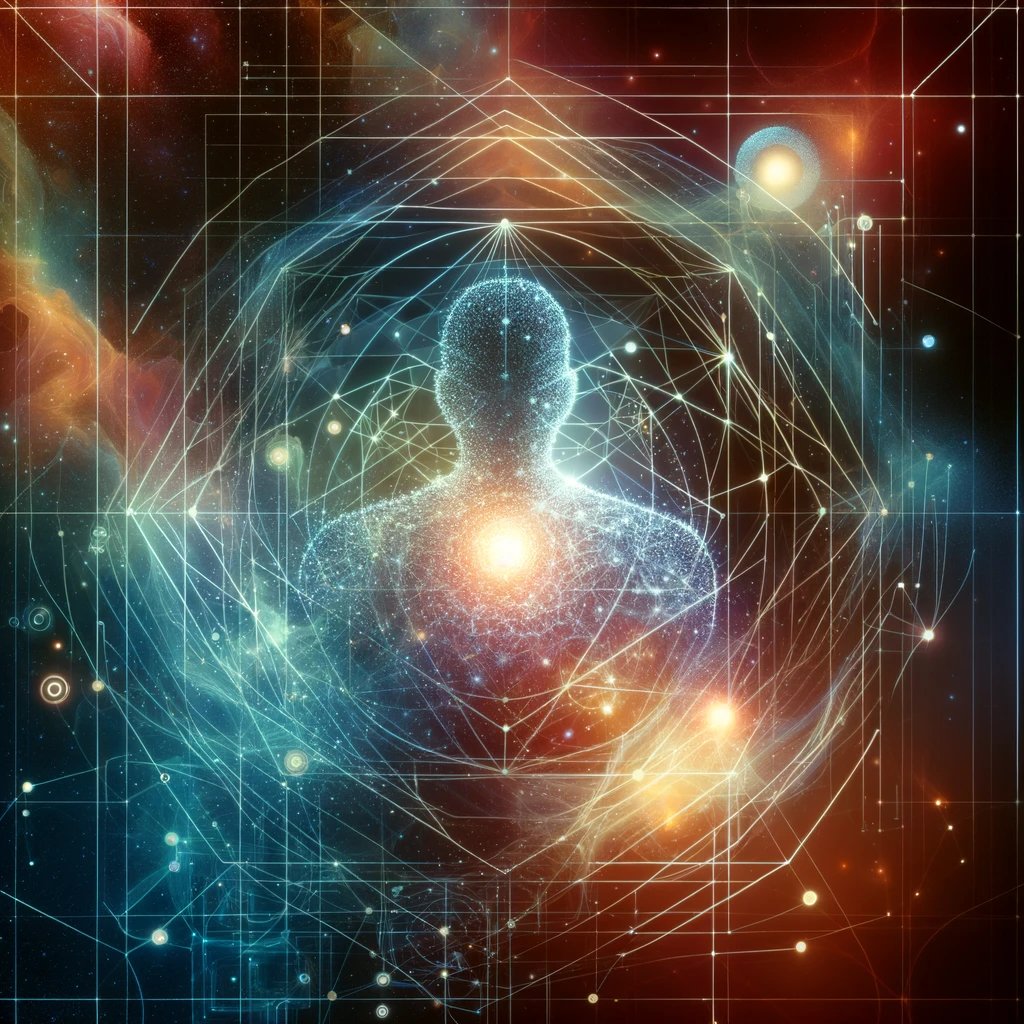
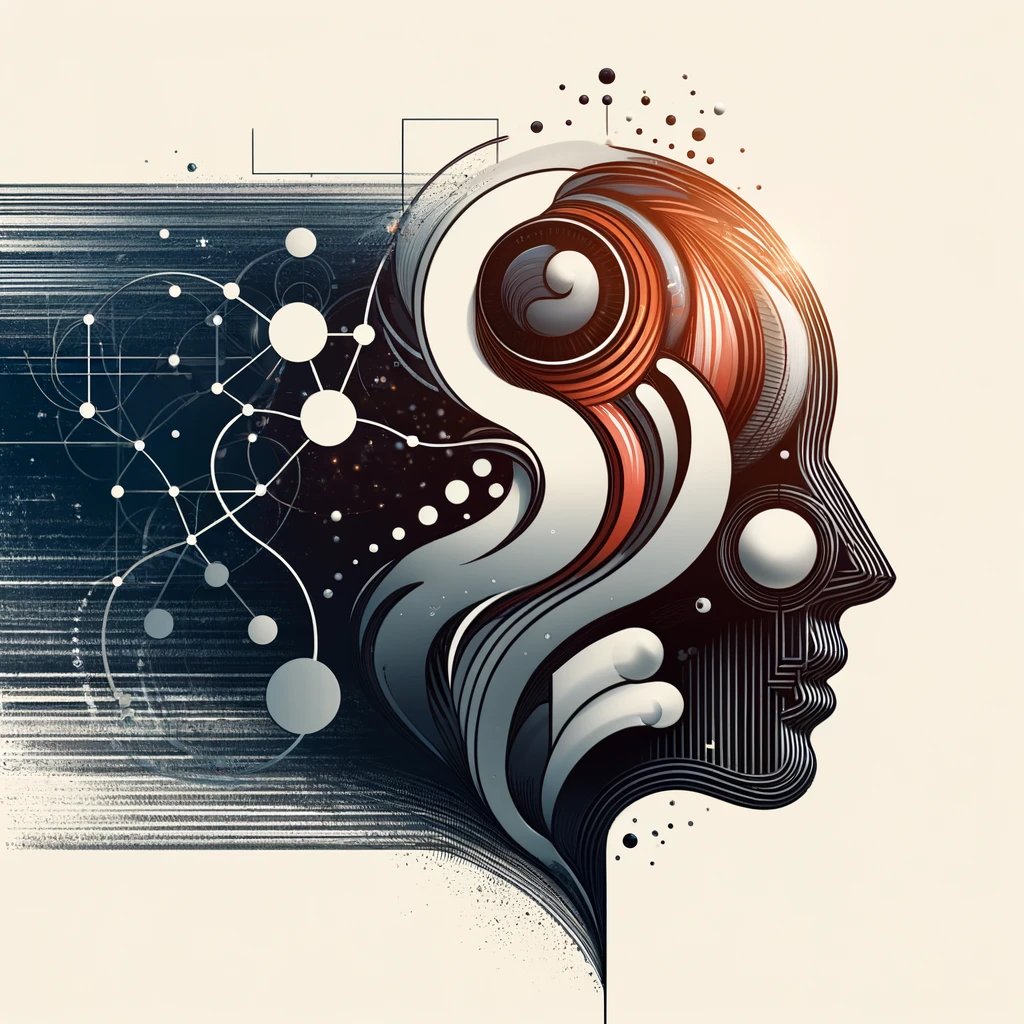



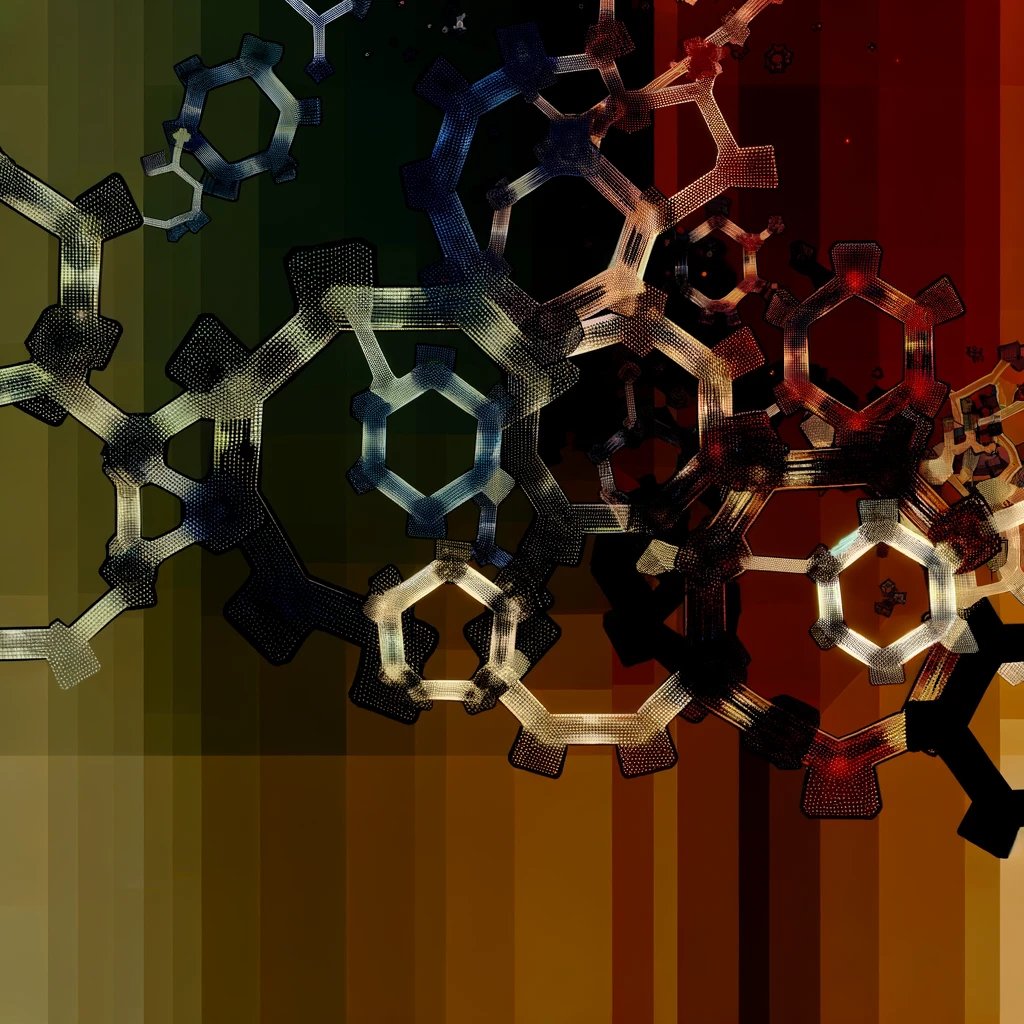
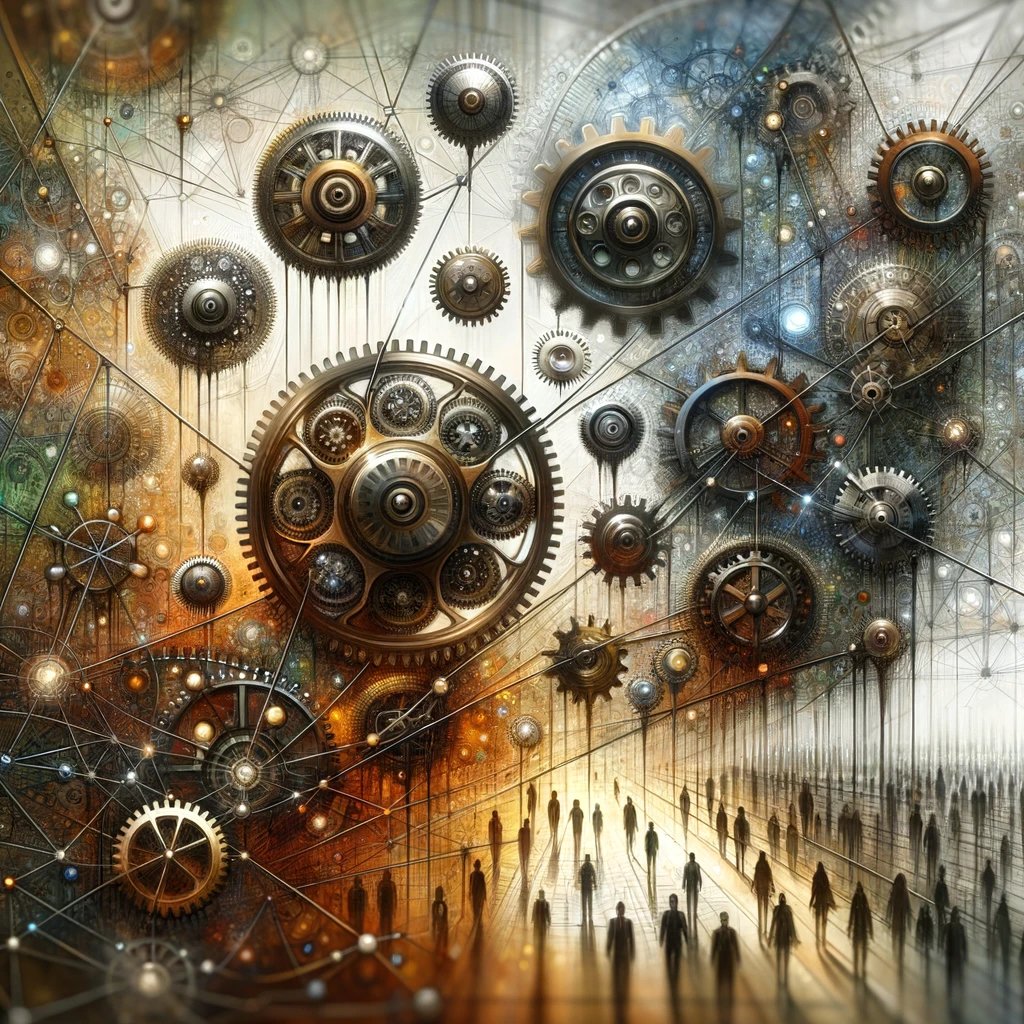



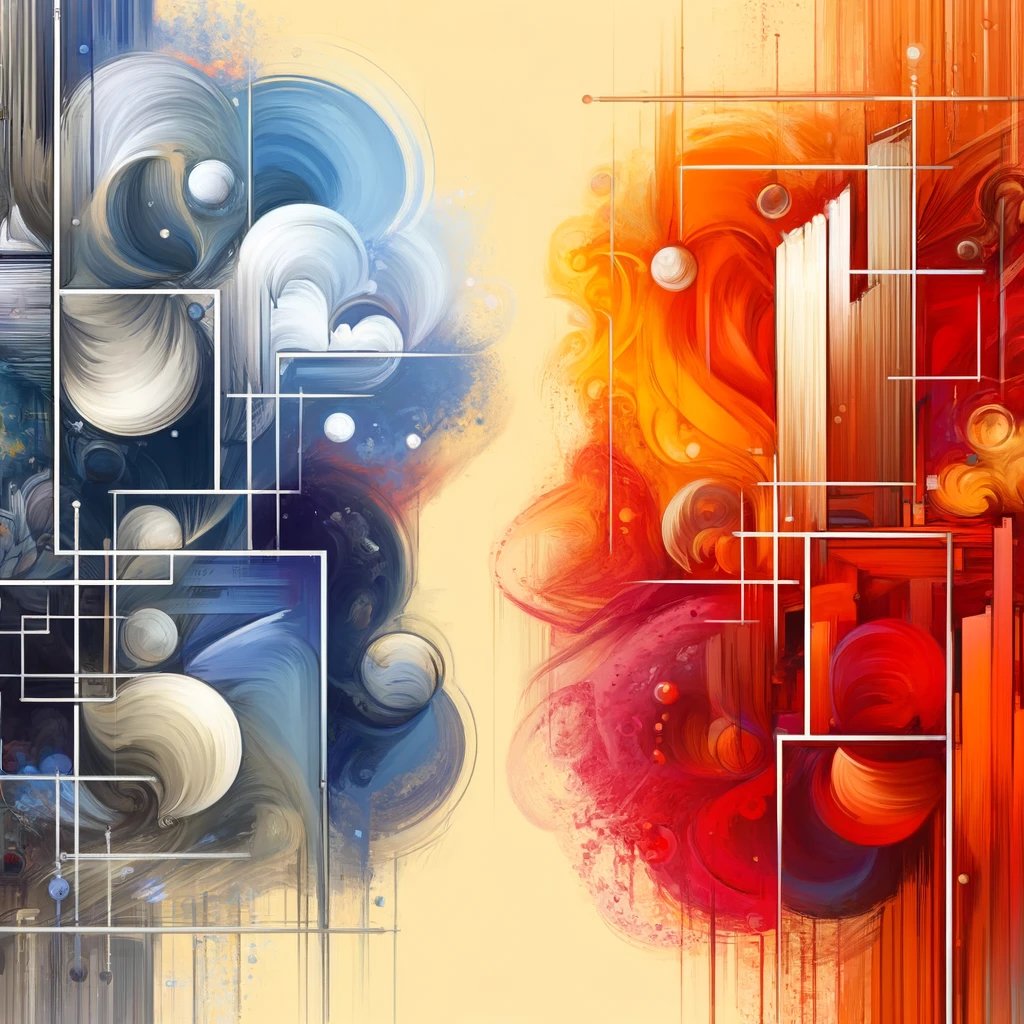




























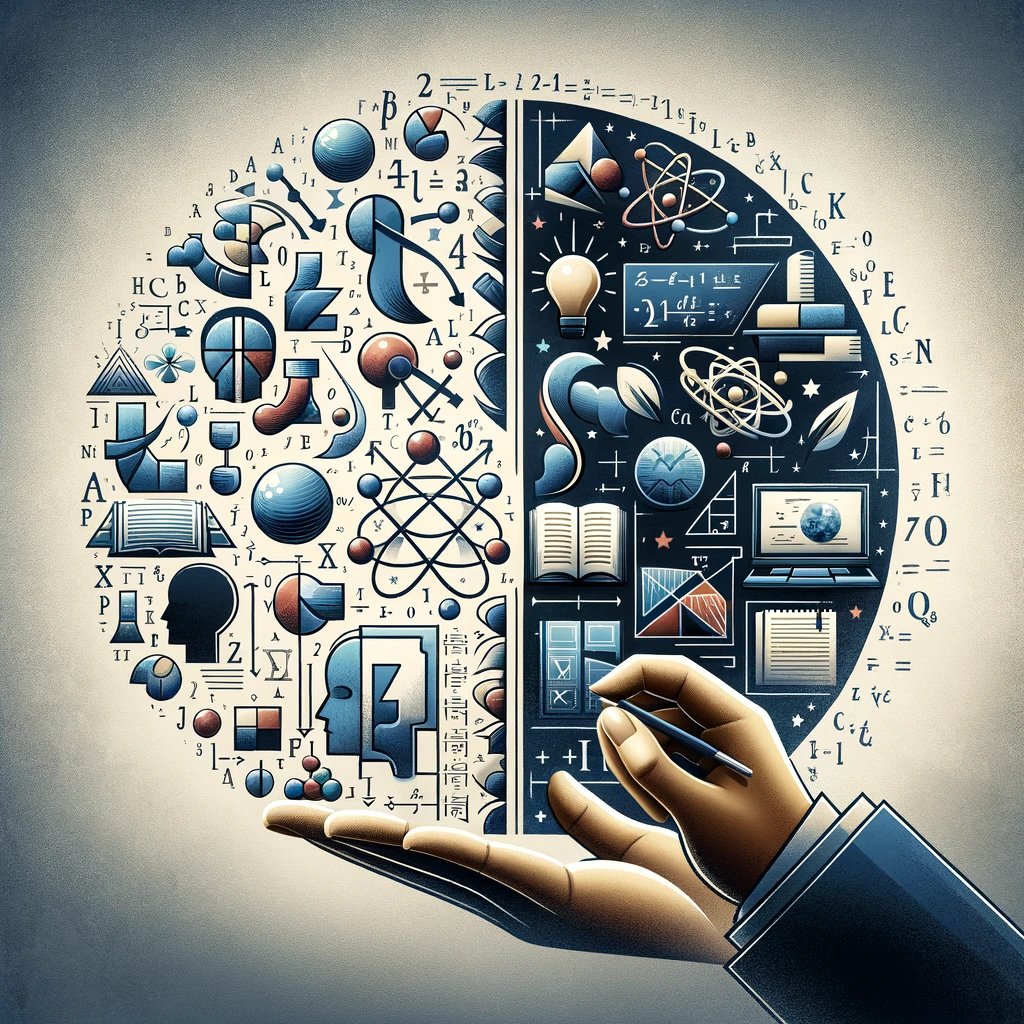
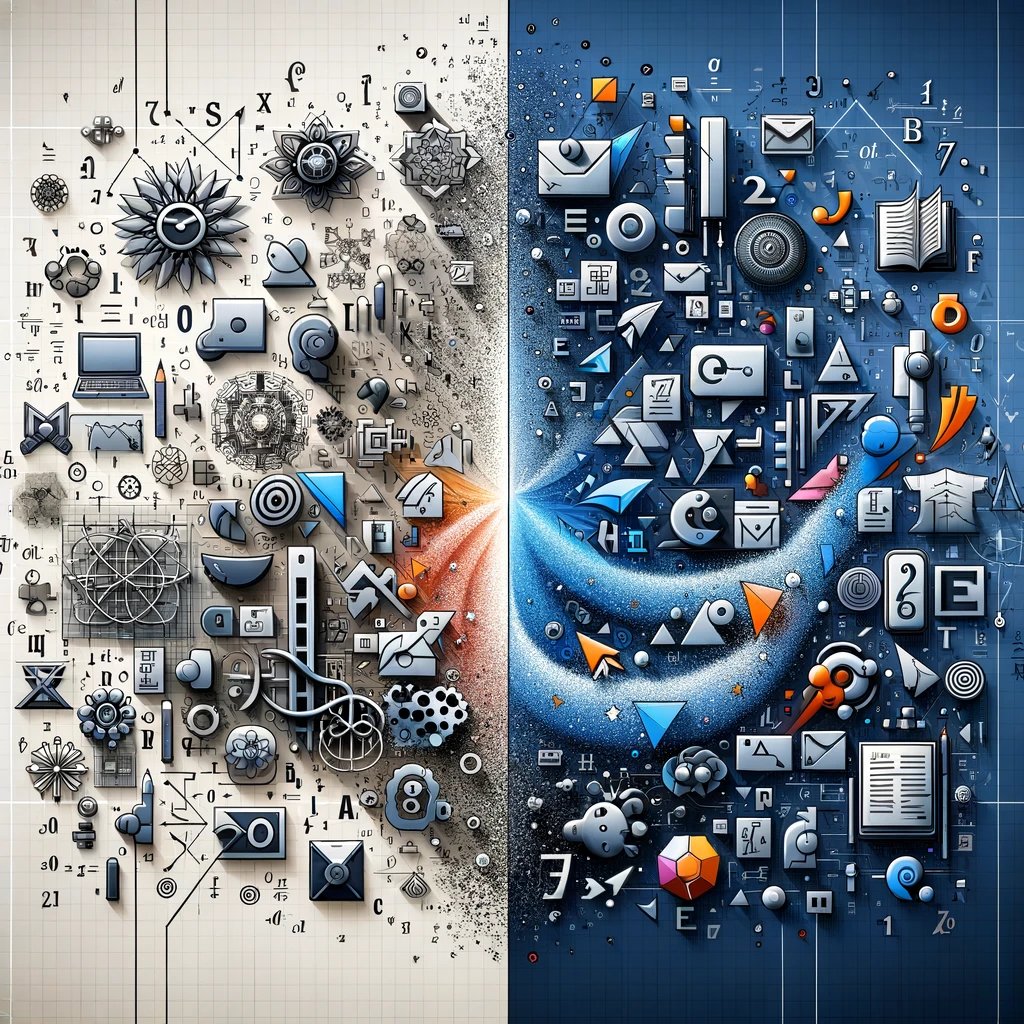
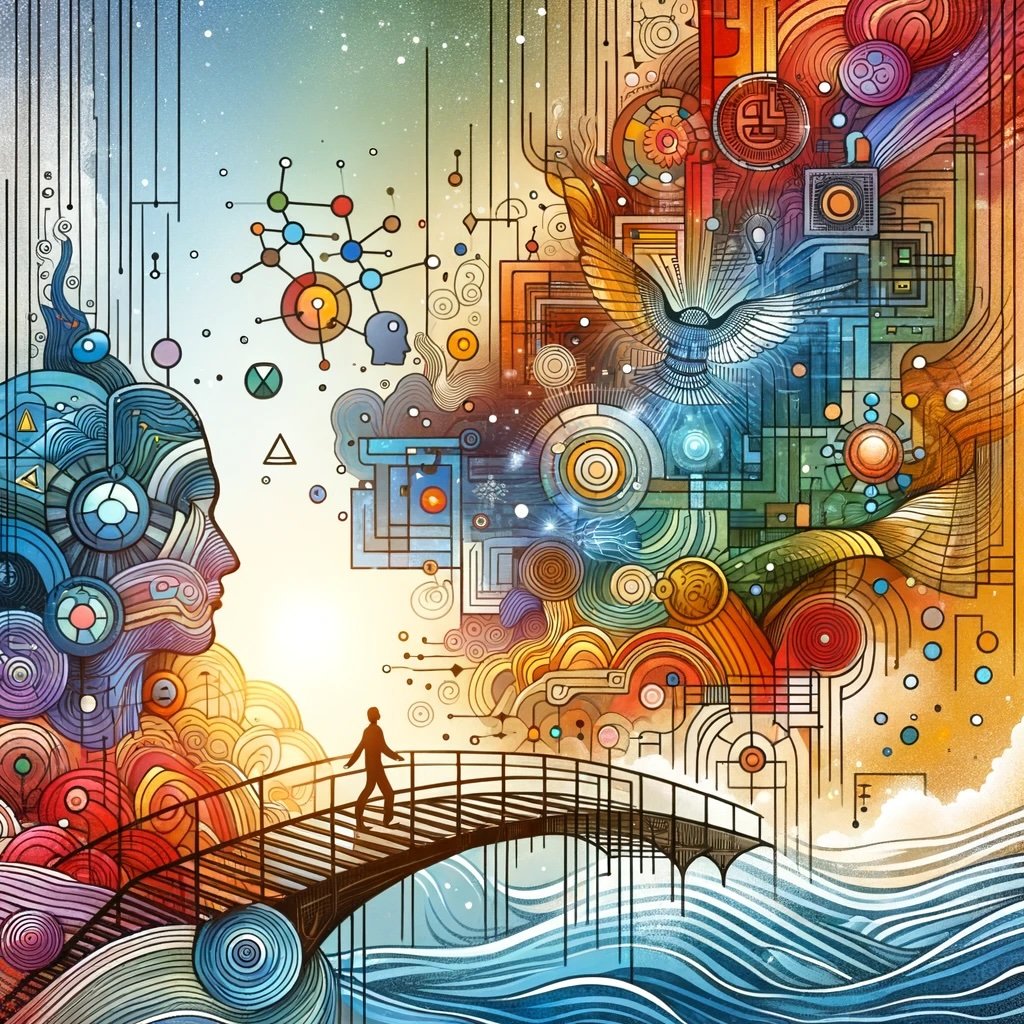

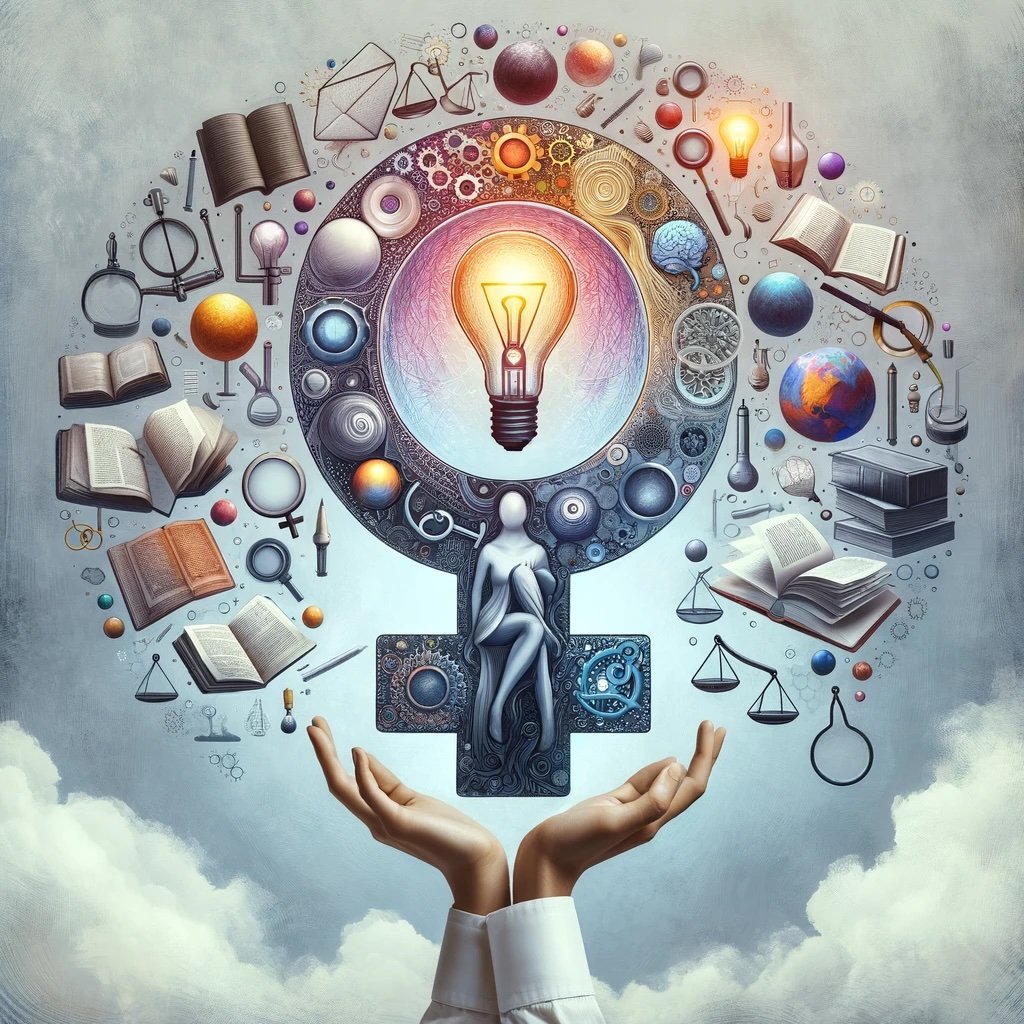












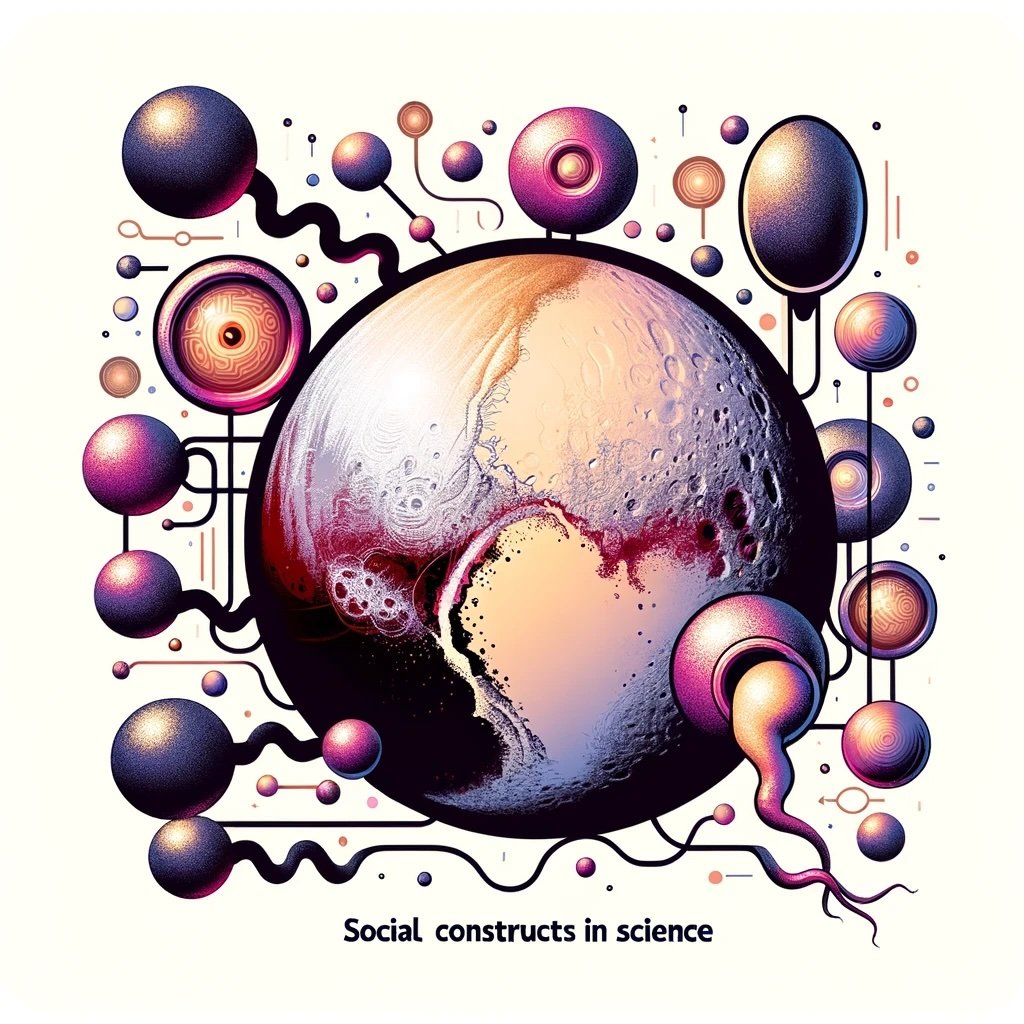
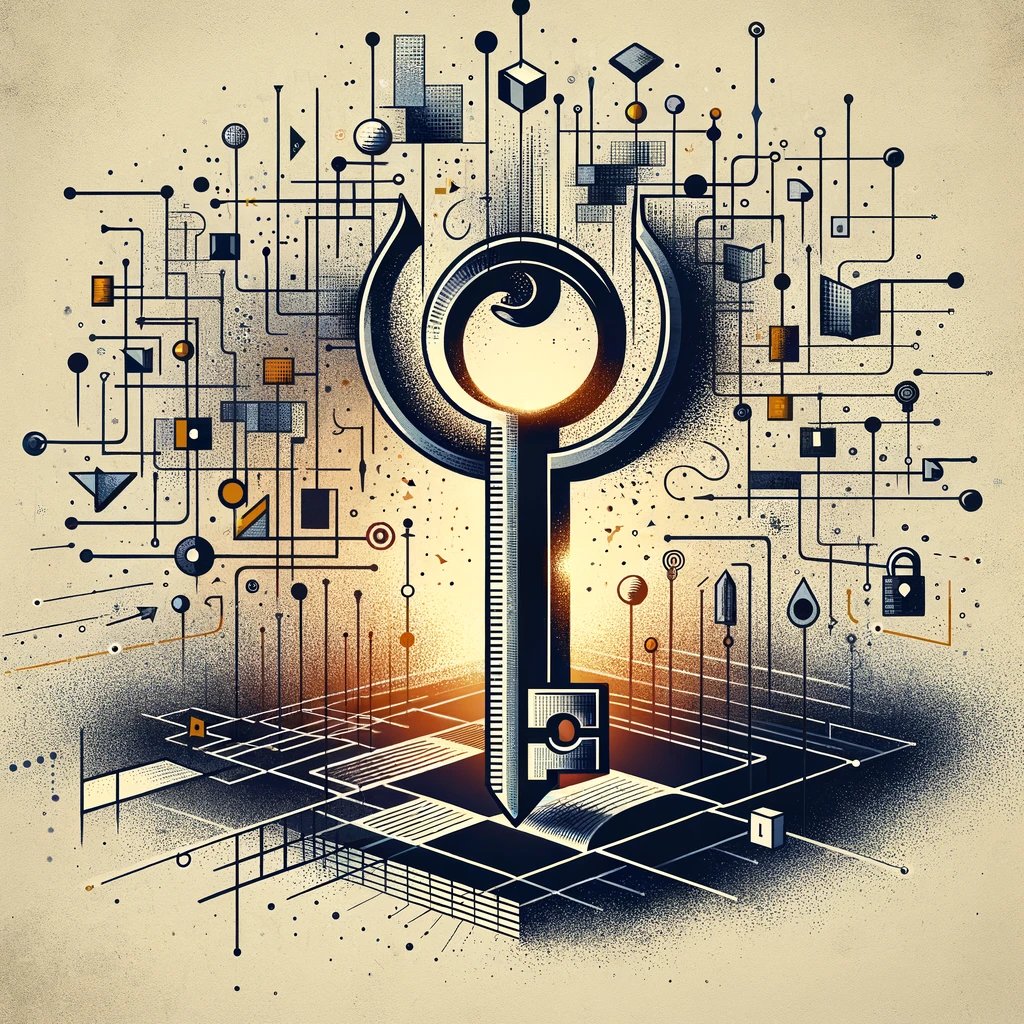



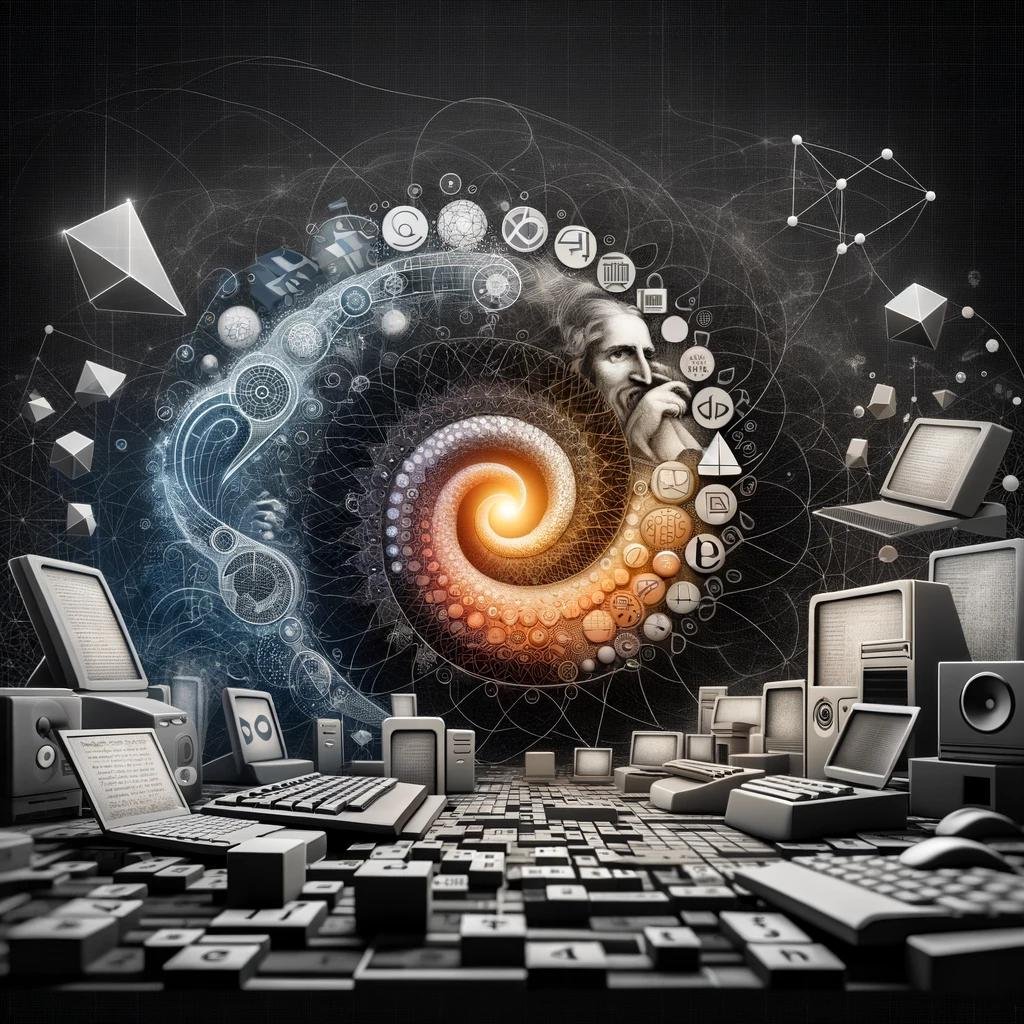




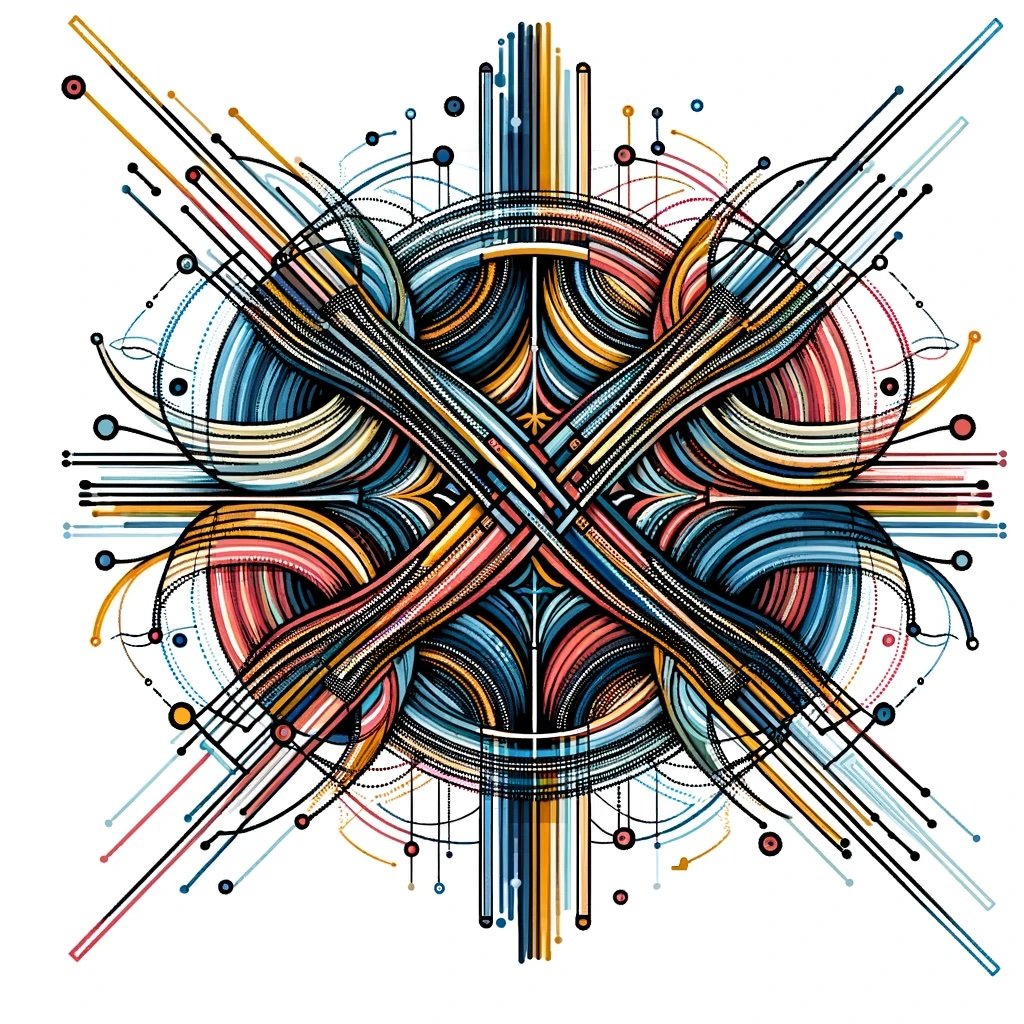

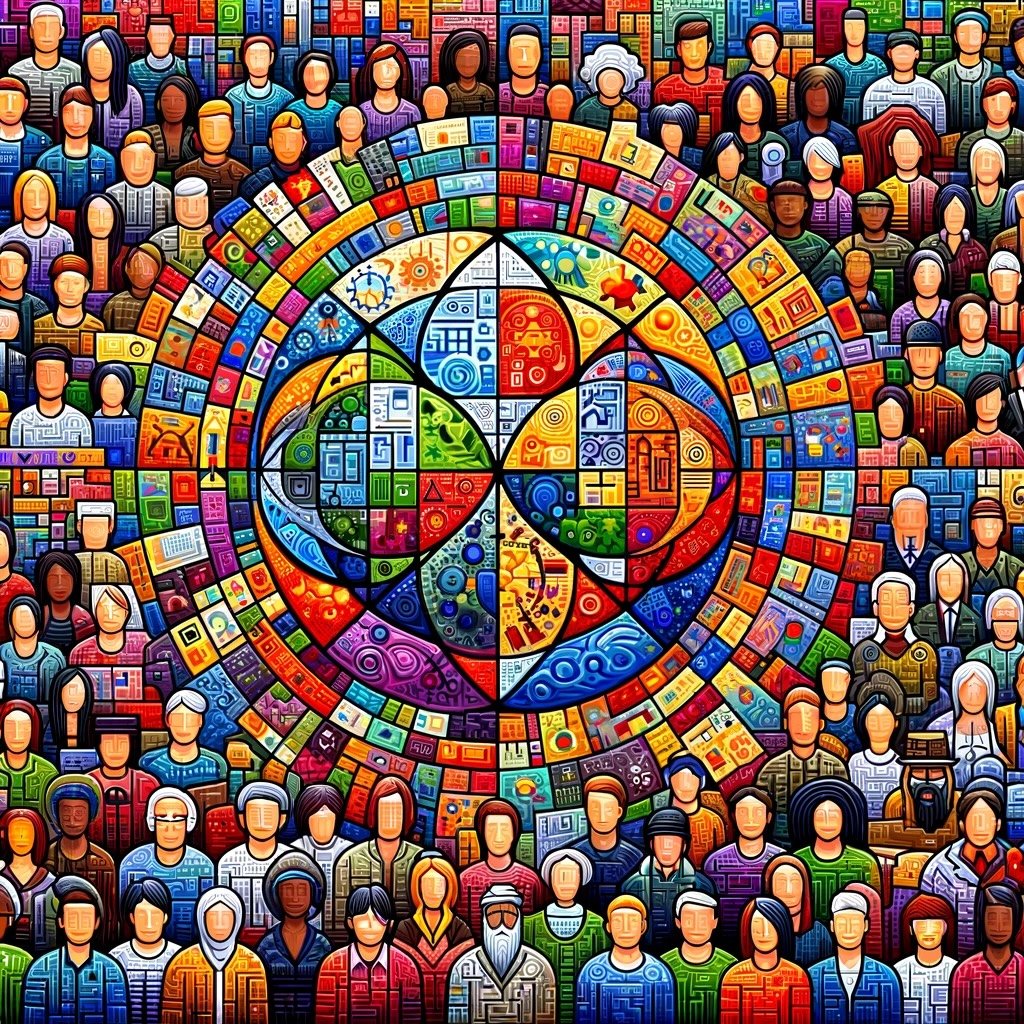

Examining the ways populism exploits incoherence and bad logic to make truth irrelevant, and the dangers this poses to political discourse.